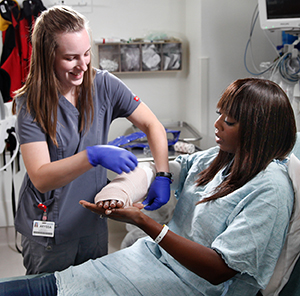Renal Bone Disease
Calcium and phosphorus are minerals found in many foods and are important for your body's function. Your body works best when these minerals are in balance. If you have kidney disease, this balance may be disrupted and phosphorus may build up in your blood. Excess phosphorus in the body tends to bind with calcium and gets deposited in blood vessels and other organs. Because most of the calcium is in the bones, this constant robbing of the calcium by phosphorus leads to weakened bones. Kidney disease also leads to reduced vitamin D levels in the body. All these changes lead to a health problem called renal bone disease.
How renal bone disease can affect the body
If it's not controlled, your bones can become weaker over time. This can increase your risk of bone fractures. The spine, ribs, and bones in the hands and feet are often at greatest risk. If your bones weaken too much, walking or coughing can be all it takes to cause a fracture. Controlling the phosphorus level in your blood is the best way to protect your bones.
 |
| Over time, renal bone disease can increase your risk of bone fractures. |
If renal bone disease progresses
The problems that may occur as the disease gets worse include:
-
Itchy skin.
-
Bone and joint pain.
-
Brittle bones.
-
Fractures.
-
Muscle weakness.
-
Deposits of calcium phosphate appear in organs, such as the heart, lungs, eyes, skin, and gums.
-
Permanent disability because of weakened bones and fractures.
Online Medical Reviewer:
Raymond Turley Jr PA-C
Online Medical Reviewer:
Sravani Chintapalli Researcher
Date Last Reviewed:
2/1/2025
© 2000-2025 The StayWell Company, LLC. All rights reserved. This information is not intended as a substitute for professional medical care. Always follow your healthcare professional's instructions.